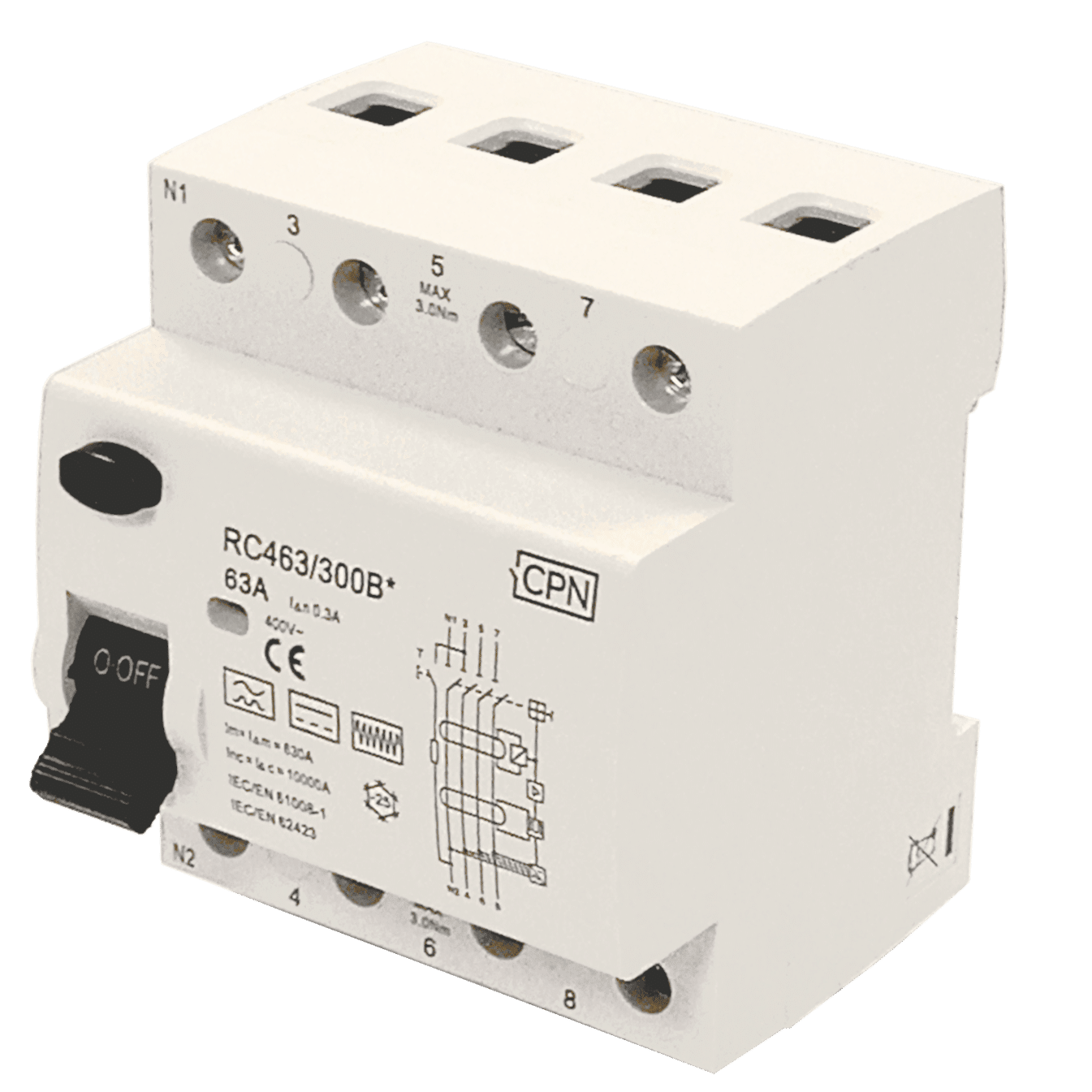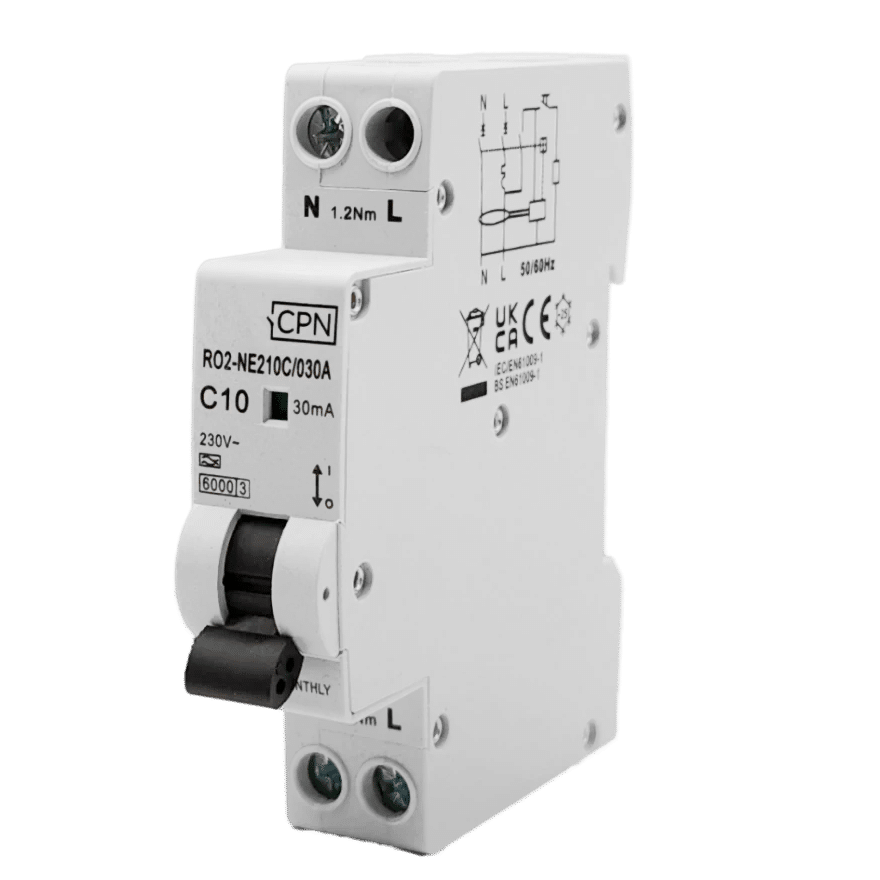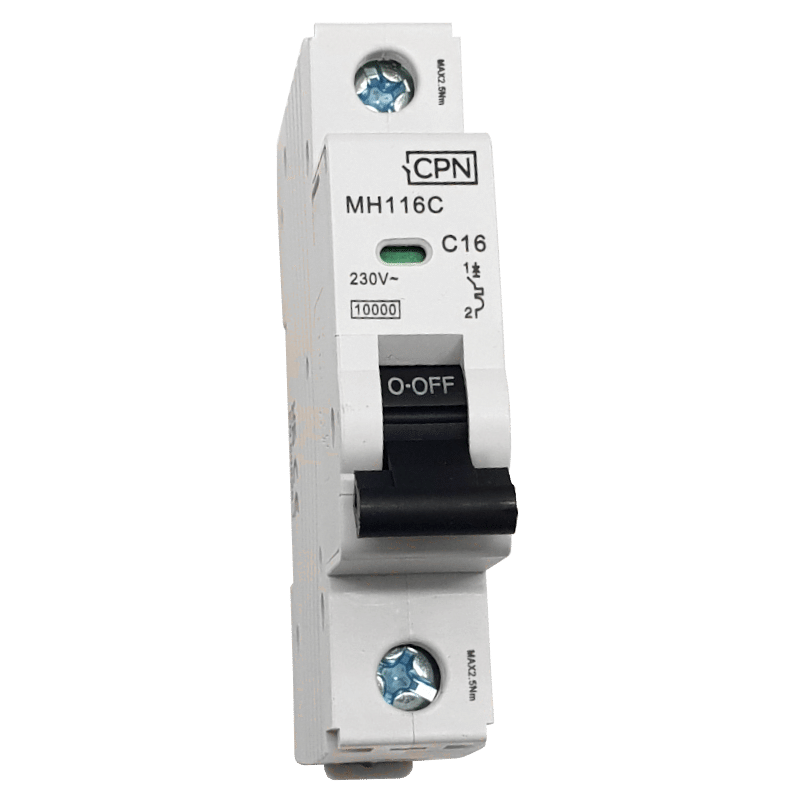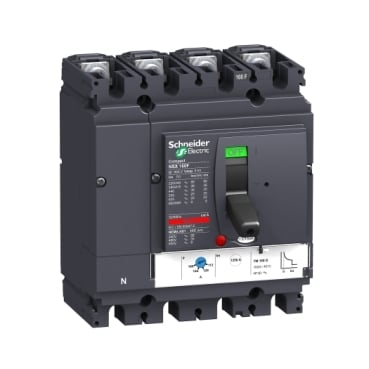
What are the differences between RCDs, RCBOs, MCBs and MCCBs?
We explain in detail the differences between RCDs, RCBOs, MCBs and MCCBs which are all used in our distribution boards.
RCD – Residual Current Device
This is used to monitor the difference between the live and neutral. Should there be a difference above the desired threshold, it is assumed that this leakage is down to a fault and the device will trip out to protect the system and users. This will generally have a test button that should be pressed periodically to ensure it is working correctly.

RCBO – Residual Current Breaker with Overload protection
This device is used to combine an RCD and MCB. This offers protection against leakage between the live and neutral like an RCD, but also protects the cabling and connections against an overload of current like an MCB. This will generally have a test button that should be pressed periodically to ensure it is working correctly.

MCB – Miniature Circuit Breaker
This is used to monitor the current passing through the circuit. Should the demand for power be greater than the designed load on the circuit this will trip out. This may be to a fault or too many appliances being connected.

MCCB – Moulded Case Circuit Breaker
This operates in the same way as an MCB, but has the capability for more current to pass through. These are generally for applications above 125A and have a larger air gap when disconnected.

RCDs Explained
What size RCD do I need?
Typically, all final circuits should have RCD protection of 30mA. This can be achieved using a fixed value 30mA RCD or RCBO or by using a variable RCD.
If you are connecting another distro which has 30mA protection on the final circuits, you will likely want to increase the RCD protection to. This can be achieved with a fixed 100mA RCD or RCBO or a variable RCD.
Why do I want a variable RCD?
We offer variable RCDs on our Three Phase outputs to allow for Cumulative Leakage while still offering protection against faults. Should a Three Phase appliance be connected to one of these outputs, it becomes a final circuit and the RCD can be set to 30mA. If this output is used to feed another distribution board, the RCD can be set to a higher amount to protect the cabling and the final circuits be set to 30mA further down the line.
What is Cumulative Leakage?
This is a term used where the expected leakage of multiple circuits is added together. In an ideal system there is no leakage however in reality systems often have a small amount of leakage. This low level of leakage on a final circuit may not trip out a 30mA RCD, but if you were to combine the leakage from several final circuits, this may trip out a 30mA RCD. To prevent this nuisance tripping, the RCD can be set to a higher current provided there is 30mA protection further down the line.
What are Cascading RCDs?
This term is used to describe the relative current and time delay settings of RCDs in a large system. We know that in a typical system, the final circuits should be set to 30mA to protect human life. We also use RCDs in other parts of the system to protect property from damage, such as fire. We know that cumulative leakage can cause nuisance tripping when there isn’t a fault, but when there is a fault on a final circuit, we don’t want this tripping out the entire system. To prevent this, we can use our higher value fixed RCDs or variable RCDs set to a higher value than our final circuit. When designing a system it is good practice to start at the final circuit. We then increase the RCD values as you move closer to the power source. For example, with our final distribution board circuits at 30mA and 30ms, our distro feeding this could be set to 100mA at 150ms. The distro feeding this could be 300mA and 250ms. Using this method, only the circuit or distribution board that has a fault should be affected.
Single Pole or Double Pole, Three Pole of Four Pole?
Single Pole or Four Pole?
Another topic to look at is whether your single phase RCBOs are single or double pole. A Single Pole RCBO will only break the line conductor, which means that a neutral to earth fault may still be present even though that circuit is switched off. A double pole RCBO will break the line and neutral, so only the earth remains.
Which is better?
We believe that breaking both the line and neutral is the best route. This will prevent a leakage fault between the line and neutral from taking our upstream RCD protection. This may be the difference between losing a single light or the entire supply. As standard, all of our distribution boards are supplied with 2 pole RCBOs on single phase outputs.
Three Pole or Four Pole?
Similar to the RCBOs, if we have a neutral to earth fault on a three phase output this should trip out the RCD protection. If the MCB, RCD or RCBO were to be 3 pole, the neutral will still be connected and the fault will still be present in the system. To overcome this, all or our three phase outputs are protected by 4 pole MCBs, RCDs and RCBOs.
If you want any further information or you are not sure what you need, Contact Us and one of our team of in house Engineers will happy discuss your requirements.


